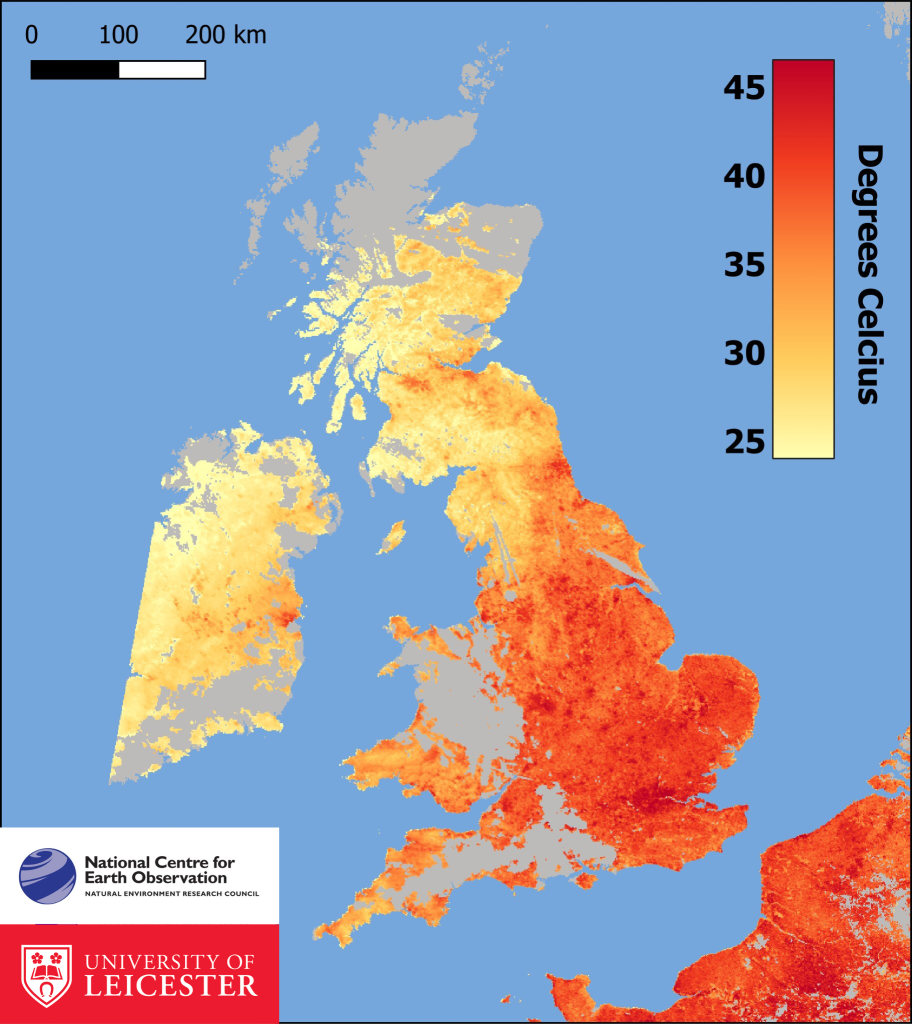World on verge of extreme weather ‘tipping point’ warn Leicester researchers

Leicester researchers studying the Earth’s surface temperature have warned the more frequent extreme weather the world is experiencing will soon reach a tipping point if carbon emissions are not reduced.
Last week, it was confirmed that 2023 was the world’s hottest year on record driven by human-caused climate change and the naturally occurring El Niño weather event. The name ‘El Niño’ is widely used to describe the warming of sea surface temperature that occurs every few years.
Among those studying the Earth’s climate system is the Surface Temperature Research Group belonging to the Earth Observation Science Department in the School of Physics and Astronomy at the University of Leicester.
The group, which is also part of the National Centre for Earth Observation and is based at Space Park Leicester, research the skin temperature of the Earth using satellites in Space, and produce climate data records.
Surface temperatures help researchers to determine the Earth’s energy budget and are considered an essential climate variable which is important for understanding the Earth’s climate system.
Group member Abigail Waring said: “As a surface temperature research group, we don’t make predictions but analyse observations. However, research suggests that air, surface and ocean temperatures are consistently increasing each year and are causing significant problems.
“Examples of this include 2023’s alarming rate of Antarctic winter sea-ice loss and substantial heatwaves for much of Western Europe and also across the world.
“We’re seeing more frequent, extreme weather across the world and now is the time to prevent reaching a tipping point through mitigation.
“Humans can help to prevent a climate tipping point by reducing carbon emissions through sustainable practices, adopting renewable energy sources, preserving forests, and advocating for policies that prioritise environmental conservation.
“Additionally, promoting and supporting initiatives that raise awareness about climate change as well as improve attitudes and interest towards it, are crucial for global efforts in mitigation.”

During 2023, new daily global temperature records for the time of year were recorded on 200 days, according to BBC analysis of Copernicus Climate Change Service data.
- Find out more about the University of Leicester


